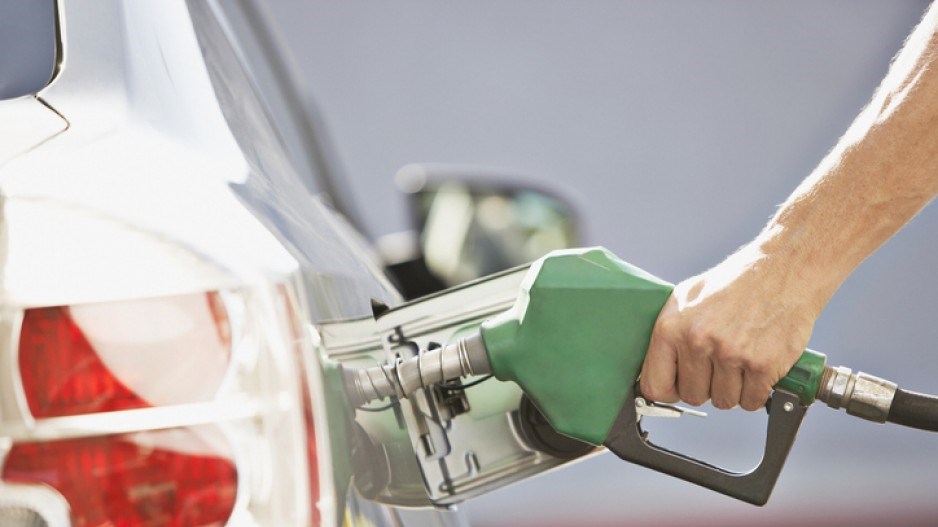Federal Conservative Leader Pierre Poilievre brings the fight over the carbon tax into Premier David Eby’s backyard next week, with a series of British Columbia “axe the tax” rallies that will shine a bright spotlight on the two very different positions of the leaders.
On the one side will be Poilievre, at events that usually draw thousands of supporters, backed by seven premiers and a majority of British Columbians (according to last week’s Mainstreet Research poll) who think the planned April 1 carbon tax increase should be scrapped because of the ongoing affordability crisis.
And on the other side, the BC NDP, the self-appointed defenders of the carbon tax, whose primary ally is a spectacularly unpopular prime minister, and whose chief defence is an old provincial rebate program that offers miniscule aid payments via cheques that don’t even come from the B.C. government.
It doesn’t sound like a fair fight. Which is a sign to B.C. New Democrats that a quick pivot may be in order, if they intend to continue to go toe-to-toe with Poilievre to save the carbon tax.
One idea? A new provincial carbon tax rebate program that doesn’t suck.
Perhaps something directly linked to the actual tax increase, that puts money back in people’s pockets in a simple, clear, broad-based way.
The B.C. government mistakenly thinks it is already doing that. It says it will collect $649 million in new carbon tax revenue in 2025, and spend $876 million in rebates.
But its main rebate program, the climate action tax credit, is a political limp noodle that gives the premier nothing to use against his opponents. It attaches quarterly payments to federal GST rebate cheques, leaving people thinking they are getting federal aid. The actual amounts are income-tested to the point most British Columbians barely see any meaningful money.
A newer, better, carbon tax rebate would go a long way to backstopping the NDP’s position in the carbon tax fight.
For the sake of fun, let's design its broad principles.
To get the maximum impact, the government would want a rebate program that matches dollar for dollar this and any other future carbon tax increase. An itemized breakdown of the actual cost of the carbon tax in a person’s life versus what they are getting back should accompany every mailout.
The best bet would be actual cash, not obtuse tax credits that lag a full fiscal year and dissipate into nothing depending on your next tax return.
The program should have a clear name, like the “Carbon Tax Adjustment Rebate.” The cheques should come from the British Columbia government, not Ottawa, with the province’s name written in big bold letters so people connect the source of the aid to the source of the increase in the tax rate.
If the cheques could be timed as a large annual payout around April 1, when the rate goes up, all the better. Failing that, monthly might work.
And, perhaps most difficult of all for the NDP, the rebates need a higher income threshold.
The existing program has no political reach to the struggling middle class when the cutoff for the maximum rebate for a single person is a net income level of below $39,115 (around $50,000 gross), and a household net income of $50,170 for a couple with a child. Government is proposing slight increases to both, starting in July, but they are inadequate to make the program meaningful to the broader population.
To fix that, the government could match the rebate levels with the gross income rates it set for the new BC Builds middle class rental assistance program — of $84,780 to $131,950 for a single person, and $134,410 to $191,910 for a household.
If people who make that much money are so financially stressed that the government has to build housing for them, they probably need help with the carbon tax as well.
As for the actual amount of the rebate — that would have to be calculated by the actuaries inside government, who can chart the amount British Columbians are taxed based on their spending for gas, home heating fuel and other ways the carbon tax ripples through the economy.
Right now, the maximum for a single person is $447 a year (paid out in $111.75 quarterly cheques) or $782 for a couple with a child. Both increase slightly in July.
All of this assumes the NDP wants to actually fight back on the carbon tax, against both Poilievre and his tribute bands in British Columbia run by BC Conservative Leader John Rustad and BC United Leader Kevin Falcon.
“If Mr. Rustad and Mr. Falcon want to talk about reducing costs for people, I say bring it on,” said Housing Minister Ravi Kahlon.
In that case, the party better give itself something to fight back with that resonates with people. Otherwise, when Poilievre rolls into town next week, it’ll just be one long victory lap to celebrate the resounding defeat of the carbon tax.
Rob Shaw has spent more than 16 years covering B.C. politics, now reporting for CHEK News and writing for Glacier Media. He is the co-author of the national bestselling book A Matter of Confidence, host of the weekly podcast Political Capital, and a regular guest on CBC Radio.



